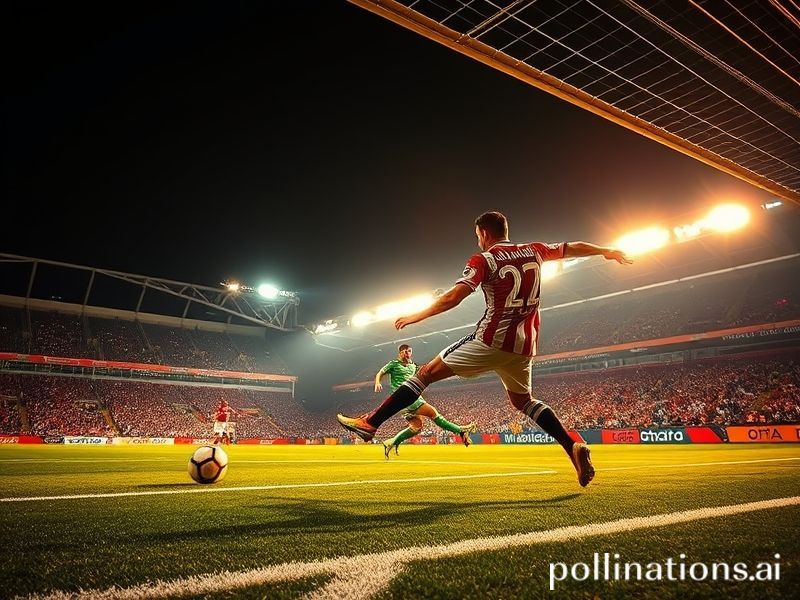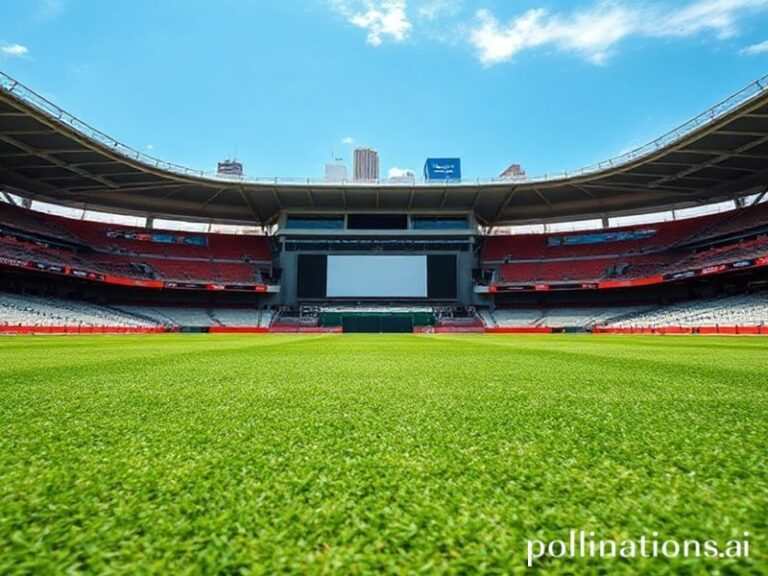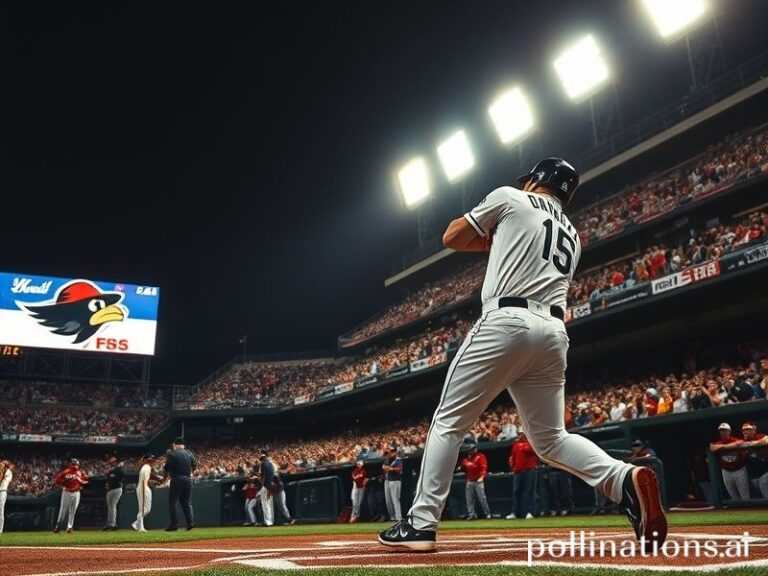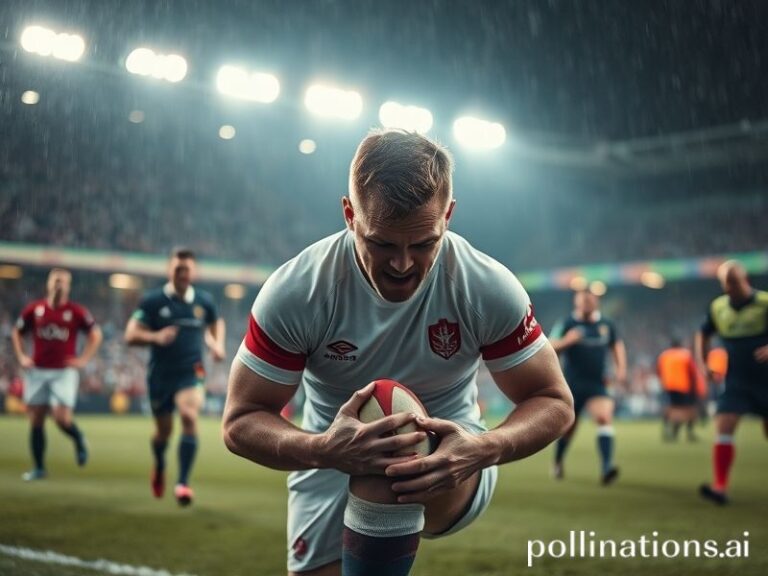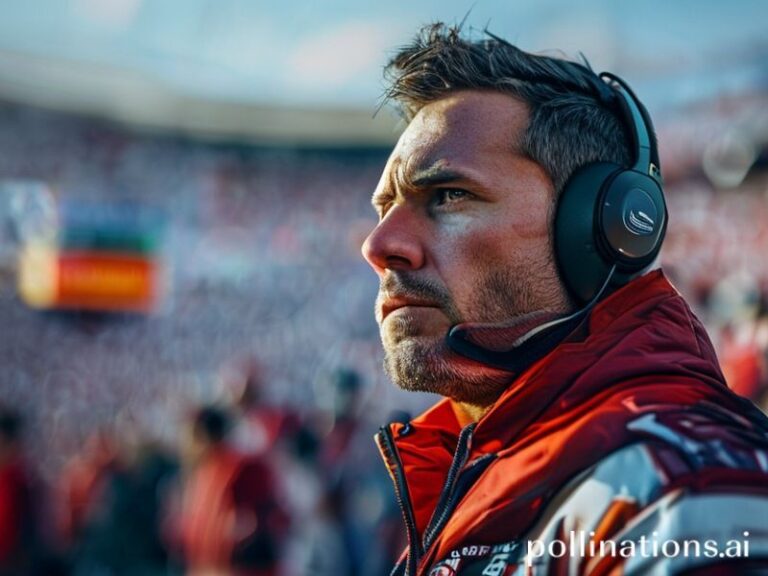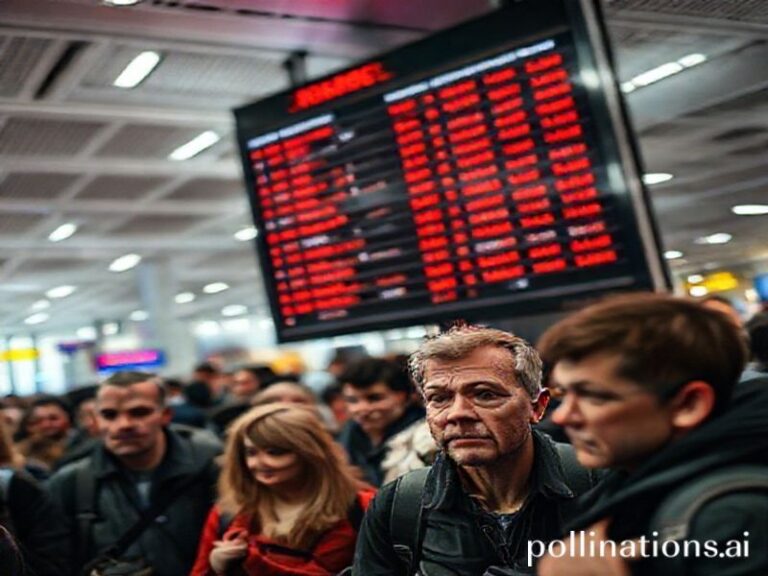Valencia vs Athletic Club: A Global Parable of Paella, Patriotism, and Pending Apocalypse
Valencia vs Athletic Club: A Mediterranean Morality Tale Beamed to a Planet That’s Already Bored
By our Special Correspondent in Existential Section J-7
Mestalla Stadium, Valencia—Thursday, 02:15 GMT+1. Somewhere between the paella pans and the palm-lined promenades, 22 millionaires in polyester are about to chase an inflatable sphere while the rest of humanity doom-scrolls its way through a climate summit and a crypto-exchange collapse. On paper, it’s a Spanish domestic fixture. In practice, it’s the latest episode of a transcontinental soap opera whose ratings spike every time someone remembers that football is still the most reliable substitute for meaning we’ve collectively agreed upon.
Valencia, the club owned by a Singaporean billionaire who hasn’t been seen in Spain since the last tax amnesty, hosts Athletic Club, the Basque outfit that insists on fielding players whose great-grandparents once shopped within 50 km of Bilbao. One side represents the globalised vacuum of modern capital; the other is a living museum exhibit of regional identity. Together they offer the viewer a convenient allegory for every geopolitical argument you’ve lost on Twitter this week.
The match is broadcast live in 183 territories, including several Pacific micro-nations whose entire GDP could fit inside Athletic’s wage bill. In Jakarta, a ride-share driver streams the game on two phones while weaving through traffic—one device for the video feed, the other for the illegal betting app. In Toronto, a graduate student live-tweets tactical diagrams to 47 followers, blissfully unaware that an algorithm in Delaware has already decided the outcome with greater accuracy. In Kyiv, the bar runs on a diesel generator; the patrons shrug and order another round because, frankly, the apocalypse can wait 90 minutes plus stoppage time.
The geopolitics are deliciously petty. Valencia’s ultras still wave pre-2007 flags, as if independence were a vintage wine that improves with neglect. Athletic’s fans, meanwhile, sing in Euskera that was nearly banned under Franco, thereby weaponising nostalgia for a dictatorship most of them are too young to remember. The Spanish state broadcaster obligingly subtitles none of this; the international feed overlays crypto-ads instead, because nothing says “cultural heritage” like a non-fungible token of a lion.
On the pitch, the first half is a masterclass in late-capitalist anxiety. Valencia’s star striker—on loan from a Premier League club whose owner just bought a super-yacht with a panic-room aquarium—misses a sitter after checking his NFT portfolio on the big screen. Athletic respond with a move so orthodox it could have been choreographed by a Marxist historian: collectivist pressing, diagonal runs, and a headed goal celebrated with the solemnity of a tax audit. The stadium erupts; somewhere in Zurich, a FIFA delegate pockets complimentary paella and wonders how to invoice the moment.
Halftime analysis arrives courtesy of a multinational panel: a former German international who pronounces “García” with audible contempt, a Brazilian journalist live from an airport lounge in Doha, and a British pundit recycling metaphors about “steel and silk” as if they were paid by the cliché. None mention that the match ball was stitched in Pakistan, the referee’s whistle assembled in Shenzhen, and the VAR bunker outsourced to a data centre in Iceland—because acknowledging the supply chain might spoil the myth of local passion.
Second half. Valencia equalise via a deflected shot that loops in slow motion, the universe’s way of reminding us that chaos is the only honest referee. Athletic’s goalkeeper, whose contract reportedly includes a Basque-only diet clause, saves a penalty while simultaneously checking the linguistic purity of the crossbar. Extra time looms; stock markets in Asia yawn; Elon Musk tweets a meme. In the 93rd minute, a teenage substitute born in Venezuela to Basque grandparents scores the winner for Athletic, thereby solving nothing and validating everything.
Full-time whistle. Players collapse, cameras zoom, and commentators scramble for profundity. The final score—2-1 to Athletic—will be forgotten by breakfast, but the narratives will metastasise: regional resistance versus global capital, tradition versus liquidity, identity versus EBITDA. Meanwhile, outside the stadium, the Mediterranean laps at seawalls built with European recovery funds already earmarked for the next flood. Humanity files out, already late for the next distraction, clutching half-eaten sandwiches and half-formed opinions, reassured that somewhere, somehow, the game goes on—until the rising tide calls full-time on us all.

